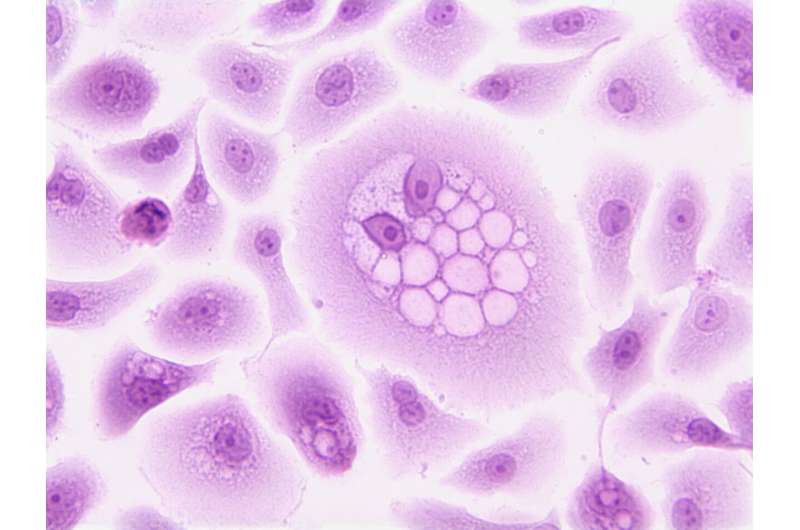Herpes Virus Engineered to Fight Advanced Melanoma Shows Promising Results

A groundbreaking study demonstrates that a genetically engineered herpes simplex virus shows promising results in treating advanced melanoma, especially those resistant to immunotherapy, offering new hope for patients worldwide.
A novel approach using a genetically modified herpes simplex virus type 1 (HSV-1) is emerging as a promising treatment for advanced melanoma, particularly in cases resistant to traditional immunotherapy. While HSV-1 naturally causes cold sores, scientists have engineered it to target and destroy cancer cells without harming healthy tissue. Recent clinical trial outcomes published in the Journal of Clinical Oncology and presented at the 2025 American Society of Clinical Oncology annual meeting reveal significant tumor reduction in patients treated with this innovative therapy.
The study involved 140 patients with metastatic melanoma who had not responded effectively to prior treatments. Participants received a combination of a genetically engineered HSV-1, known as RP1, and immunotherapy drug nivolumab. Remarkably, about one-third of these patients experienced at least a 30% reduction in tumor size, and approximately 17% achieved complete tumor disappearance. These findings are particularly encouraging given that advanced melanoma often has limited treatment options and poor prognosis.
This new therapy leverages oncolytic viruses—viruses designed to infect and kill cancer cells while stimulating the immune system. RP1, the virus used in this trial, replicates within tumors, destroying cancer cells directly, and also prompts the immune system to attack other cancer sites throughout the body. Importantly, the treatment was well tolerated by patients, with manageable side effects.
The success of this approach has led to the launch of a Phase 3 clinical trial, named IGNYTE-3, aiming to include over 400 participants worldwide to confirm these promising results. Researchers believe that oncolytic viruses like RP1 could revolutionize cancer treatment by offering effective options for tumors that are difficult or impossible to reach with conventional therapies.
Source: https://medicalxpress.com/news/2025-07-cancer-herpes-virus-shown-effective.html
Stay Updated with Mia's Feed
Get the latest health & wellness insights delivered straight to your inbox.
Related Articles
France Implements Outdoor Smoking Ban in Public Spaces to Protect Children
France is set to ban smoking in outdoor public spaces accessible to children, including beaches and parks, starting July 1, 2025, in a major effort to protect youth from tobacco exposure.
New Study Finds Mediterranean and Keto Diets Effectively Lower Blood Pressure and Promote Weight Loss
Discover how recent research shows both Mediterranean and keto diets can effectively lower blood pressure and promote weight loss, offering personalized options for cardiovascular health management.
Protecting Fertility While Treating Gynecologic Cancers: Advances in Precision Medicine
Recent advancements in genetic testing and precision medicine are transforming gynecologic cancer care, offering new hope for fertility preservation and personalized treatments for women worldwide.
President Trump Announces Pfizer Agreement to Reduce Certain Drug Prices
The Trump administration has announced a deal with Pfizer to lower prices on certain drugs and reduce tariffs, aiming to make medications more affordable for Americans. Learn more about the potential impact of this agreement on drug pricing.



